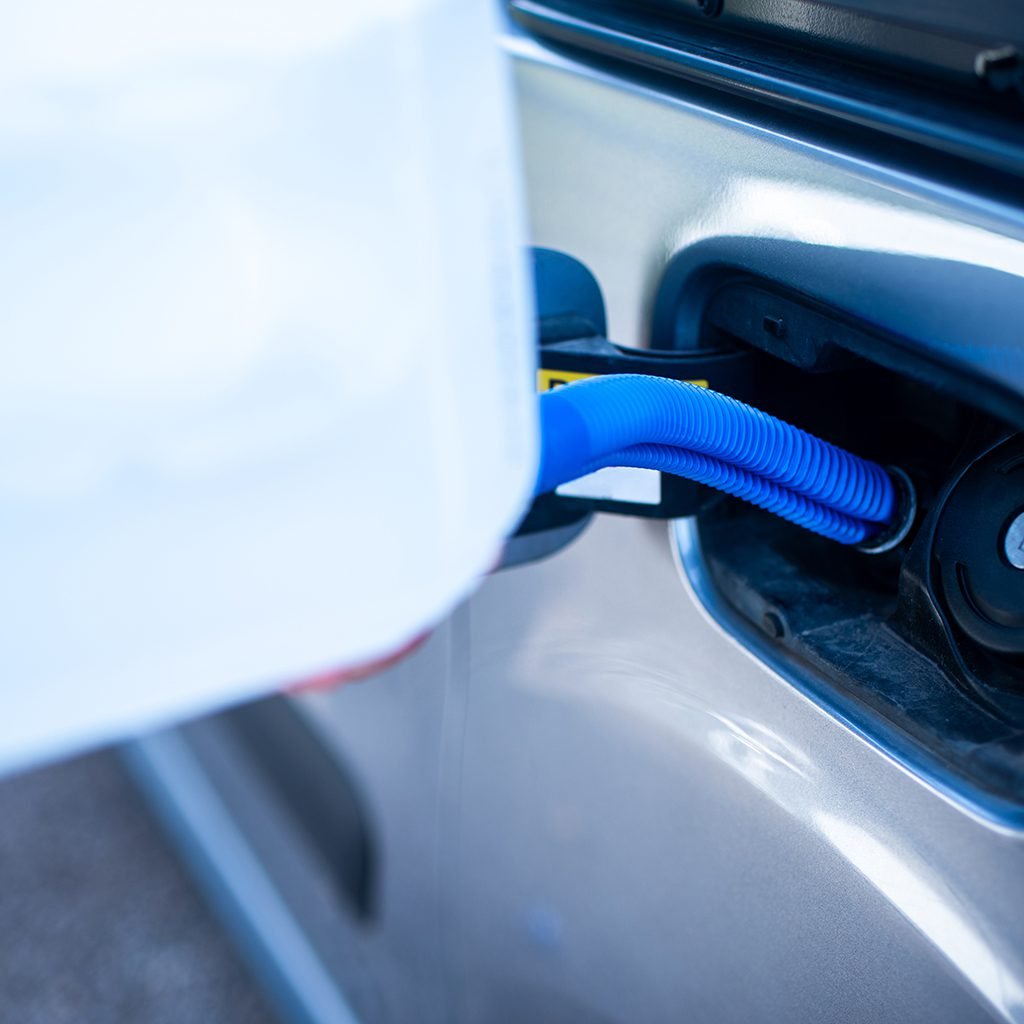Anti-Crystallization Additives for AdBlue®: Why and How to Use Them

AdBlue® is a carefully formulated solution of 32.5% urea and demineralized water. It is essential for reducing nitrogen oxide (NOx) emissions in diesel engines equipped with Selective Catalytic Reduction (SCR) systems.
However, AdBlue® is chemically unstable. Under certain conditions, it can degrade and form crystals (commonly cyanuric acid). These deposits may clog injectors, block pipelines, or damage sensors and catalysts, leading to costly repairs.
Anti-crystallization additives are designed to prevent the formation of such crystals or dissolve them once they appear.
Why Does AdBlue® Crystallize?
Crystallization risk increases under the following conditions:
Short journeys: SCR system does not reach operating temperature, preventing full vaporization.
Stop-and-go traffic: Typical in urban driving such as taxis, buses, and delivery vans.
Infrequent use: AdBlue® stagnates in the tank and lines.
Cold climates: Low temperatures accelerate crystallization.
Residual deposits: Dried AdBlue® around injector nozzles forms crystals quickly.
These conditions affect both private cars and professional fleets.Types of Anti-Crystallization Additives
1. Stand-Alone Additives
Manually added to the AdBlue® tank alongside standard AdBlue®.
Examples:
Admax (Xenum)
MécaTech D2U
Tunap 987 / Tunap 988
Warm Up
Wynn’s Anti-Crystallization
Bardahl Anti-Crystallization
Typical dosage: 25–100 ml per 8–12 liters of AdBlue®, depending on the product.
Functions:
Prevent cyanuric acid crystal formation.
Dissolve existing deposits.
Protect injectors, pumps, and sensors.
Reduce risk of SCR malfunction warnings.
2. Pre-Mixed Additized AdBlue®
AdBlue® pre-blended with an anti-crystallization agent.
Examples:
Total ClearNOx® (Diaxol®)
CleanR MAX® (Renault Trucks Oils)
Advantages:
Ready to use, no manual dosing required.
Universal application (cars, trucks, buses, agricultural machinery).
Convenient for fleets and regular use
3. International Market Additives
Well-known in English-speaking regions:
5in1 Blue+ AdBlue® Enhancer (250 ml)
Wynn’s Crystal Clean & Protect (125 ml)
Forté Exhaust Crystal Preventer (150 ml)
Benefits of Using Anti-Crystallization Additives
Cost savings: Avoids injector, pump, or catalyst replacement.
Cleaner system: Reduces deposits in tanks, lines, and dosing units.
Higher reliability: Fewer dashboard warnings and limp modes.
Versatility: Suitable for cars, vans, trucks, and industrial diesel engines.
Flexibility: Preventive or corrective use depending on needs.
Safety and Usage Recommendations
Only pour into the AdBlue® tank, never into the diesel tank.
Use a funnel with a flexible spout to prevent spills.
Store in a cool, dry place, away from sunlight.
Wear gloves and protective eyewear; products may be irritating.
Follow the manufacturer’s recommended dosage.
Conclusion
Crystallization is a major risk associated with AdBlue®. If left untreated, it can cause SCR system failures, immobilize vehicles, and generate high repair costs.
Using anti-crystallization additives—either as stand-alone solutions or as part of pre-mixed AdBlue®—is an effective way to:
Protect SCR systems.
Extend the service life of components.
Ensure cleaner emissions and reduce operating costs.
For vehicles making short trips, fleets operating in cities, or diesel engines in cold climates, these additives are a simple preventive solution to a complex and costly problem.
test comment
good